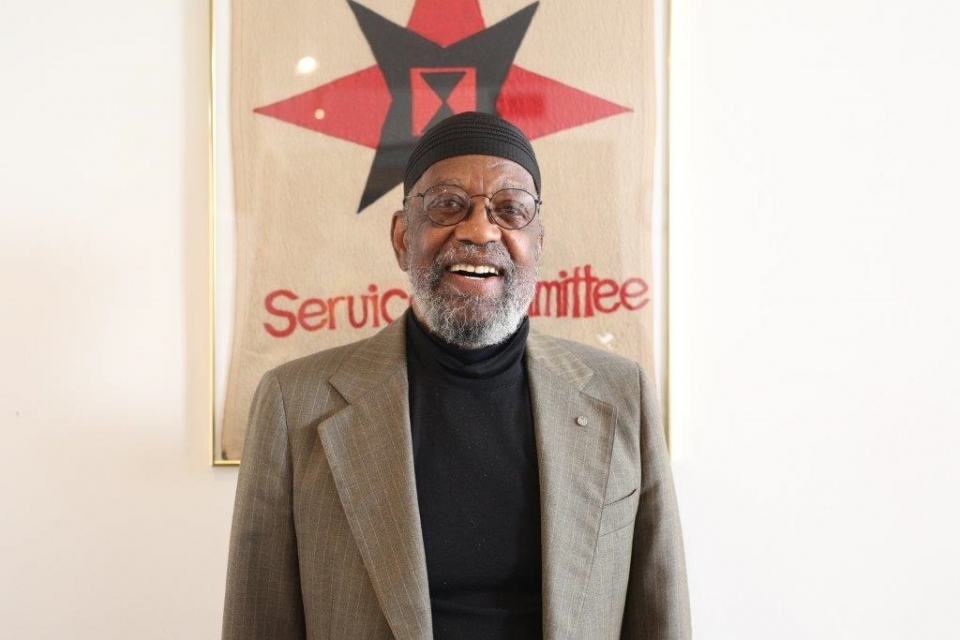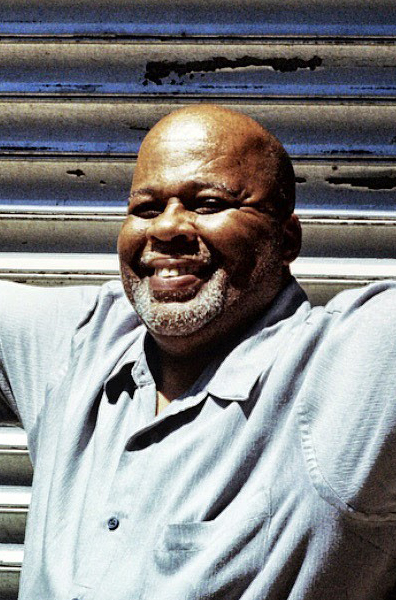
In January, Larry “Luqman” White passed away at the age of 87. He was a mentor for many in working to promote healing justice in New York and beyond—and the force behind AFSC’s Hope Lives for Lifers program. Since 2018, the program has provided support to more than 200 people serving long sentences in New York prisons.
Larry’s constant reminder that Quakers and Quaker institutions have been—and must continue to be—in the work of prison reform and abolition has inspired many of us. I often reflect upon the day Larry told me in a caring yet demanding way that the American Friends Service Committee “has to help him get back inside to continue his sentence mapping and non-traditional approach teachings.” Without the ability to tell Larry no, we did and will continue to bring his love and guidance to those he “left behind.”
While Larry the person will be missed, his spirit and commitment to healing justice will get us to that place he spent his life seeking.
To learn more about Larry and his decades of work, I encourage you to read this profile of Larry and the start of the Hope Lives for Lifers program. It has been adapted from an article published by AFSC in 2015.
Larry White was the founder of Hope Lives for Lifers, a project of AFSC in New York. But his work really began during the 32 years he spent at Green Haven Correctional Facility.
In 2015, he shared with AFSC some of his memories of growing up in Brooklyn in the 1930s and ’40s. He knew early on that his family didn’t have much. As a young child, he would wake up at 4 a.m. to steal food from the early-morning deliveries made to the grocery store down the street. “I made up my mind early—all the things that other people had, I was gonna get on my own,” he said.
Throughout much of his youth, Larry was in and out of trouble. He was 14 years old the first time he landed in a juvenile detention facility. Mostly theft. Burglaries. The last sentence he would serve started in 1975, when he received 25 years to life for an armored truck robbery in which two people were killed.
“The prospect was both frightening and overwhelming for me,” Larry said. “When you get that kind of sentence, nobody sits you down and tells you how to go about serving it.” His survival had a lot to do with the strategy he developed to live out those years. “I established two principles of confinement— to earn my release from prison as quickly as possible and to leave prison in better condition than when I came in,” he says.
To reach that goal, he mapped out the next 25 years, dividing his time into five-year increments. For each increment, he set shorter-term goals—educational, family-related, spiritual, and so on—and worked to accomplish them.
Larry followed prison rules. He ran the prison newspaper. He became a mentor for younger inmates, sharing his approach to serving his sentence. In time, he helped found the Think Tank, a support group for people serving long-term sentences, under the guidance of prison chaplain the Rev. Ed Muller. The Think Tank was in turn instrumental in launching the Alternatives to Violence Project, which got its start in the 1970s when the prison group invited Quakers to Green Haven to discuss ways to teach younger inmates about resolving conflicts without violence.
“No one is going to tell you how to do this—you have to evolve yourself,” Larry said. “I studied literature on confinement and talked to others about developing a road map to survive long-term prison sentences.”
The manual that Larry began formulating in prison, “Beyond the Yard: Constructing a Prison Life,” eventually became a resource for people throughout the New York state prison system. In 2018, the Department of Corrections began to distribute the publication to inmates serving long sentences. Several groups contributed to the manual’s development: Exodus Program, led by the Rev. Muller; the Association of Black Psychologists; Be the Evidence, based out of Fordham University; Community Service Society of New York; and Aging Resources Consultation and Help, run by the New York Yearly Meeting.
AFSC and Exodus also coordinated prison group discussions using the manual as a guide. During the COVID-19 pandemic, these in-person trainings were paused, and Hope Lives for Lifers pivoted to focus on community-based advocacy for policy changes to bring lifers and long-termers home. We look forward to the opportunity to return to direct accompaniment of our in-prison support.
“People serving long sentences have a great deal of potential,” Larry said, “but that potential needs to develop while they’re inside. This program helps get people in touch with their potential.”
